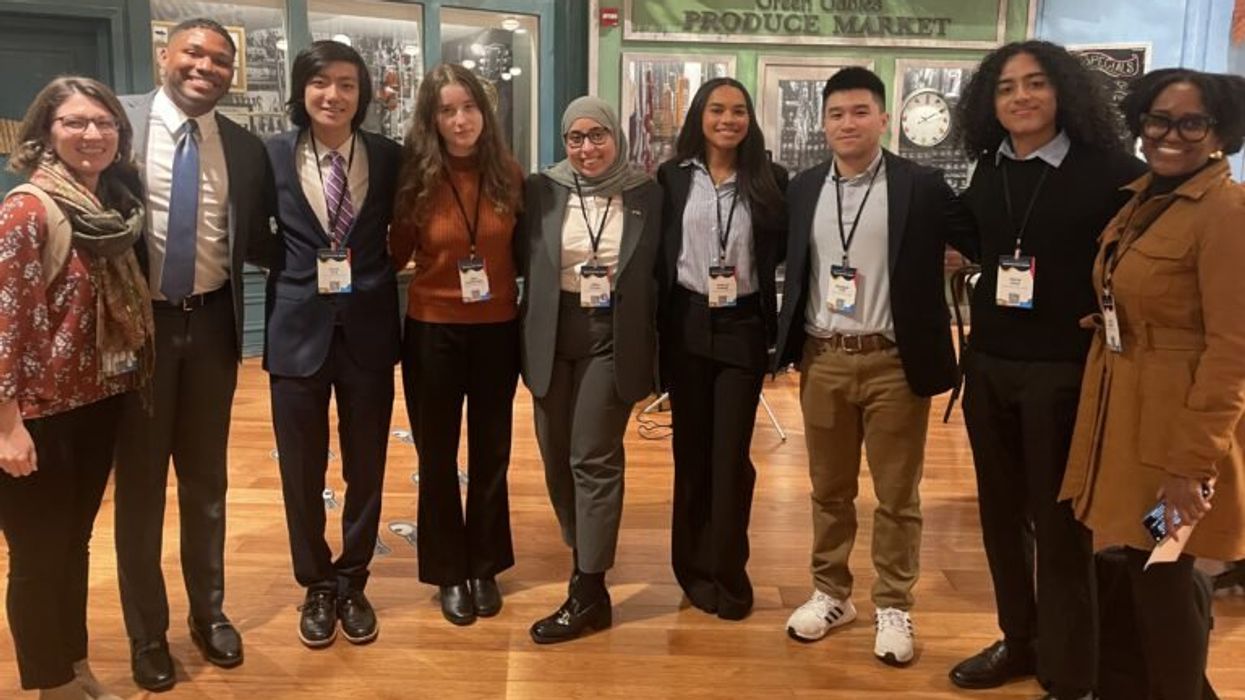We have many reasons to be cynical about our democracy these days. Hyper-partisanship interferes with the functioning of American democratic institutions. Left- and right-leaning media continue to spoon-feed an endless stream of biased news, depressing an already too-depressed population. And both political parties are fractured and dysfunctional in unprecedented ways. Yet, even amid that doom and gloom, I recently witnessed extraordinary examples of civic innovation from the next generation.
The National Conference on Citizenship hosted a panel at its annual event in December highlighting the winners of a new awards program: the Youth Civics Solution Competition. According to the sponsor, the Institute for Citizens and Scholars, the program is a “national challenge designed to elevate the voices of young people aged 14-24 with innovative ideas about strengthening civic knowledge, engagement, and trust across the United States.” Nearly 150 submissions were reviewed, and 10 winners were selected. The session with some of the winners held this month in Washington, D.C., was one of the most inspiring and fascinating displays of creativity in the civics arena.
Emily Gorodetskiy, a high school junior from San Francisco, designed a VR headset to simulate voting. “I want to take the stigma out of voting for those who may be intimidated by the process,” she said. The tool is especially useful for new citizens from other countries, and she’ll be using the prize money to expand the software beyond the three languages it currently offers.
Brandon Tran, 22, is taking a break from graduate school to run a nonprofit he founded, ChallengeUS. The goal is to create an international competition for students for writing and speeches. In the first year of the program more than 300 students from 54 nations applied, with winners coming from Pakistan, Zimbabwe, Ireland, Canada and the United States. The experiment caught the attention of the United Nations, and Brandon was asked to attend the Summit of the Future in New York.
David Guo, 17 years old and from Fountain Hills, Arizona, is encouraging members of his network to express their civics concepts through an unlikely source: art. The idea is for participants to illustrate some aspects of our democracy to allow people to “visualize their role and how they can contribute,” Guo said.
Parth Joshi is an undergraduate student at the University of Southern California and leads the Activist Incubator, a six-week curriculum that teaches students the ins and outs of advocacy based on historical movements and practical skills. Students also host an advocacy event at the end of the semester, with the goal of fostering more political engagement at USC.
Isabella Hanson, 18, of Chadds Ford, Pennsylvania, led student-run workshops addressing current issues related to media literacy and civic knowledge through poetry. The “I Matter” initiative is aimed at empowering individuals across the U.S. to develop innovative ideas that enhance civic knowledge and engagement. "Poetry and artwork were my ways of processing the world around me,” Hanson said. “It gave me an outlet, and I realized that others needed a space to share their stories too."
Spokane, Washington, is increasingly a diverse city, with a growing international population, especially for Syrian and Ukrainian refugees. So, Jenna Fliesen, 23, saw a need to support this community and founded Spokane Rising. The event aims to bring together Gen Z with mentors and partner with Spokane's refugee and immigrant communities. “With so much growth in our city, it’s never been more important to build these connections and empower the next generation of change-makers,” she said.
If all Americans could spend an hour with this group of extraordinary young people, they might feel that the future of our democracy is in better shape than they think.
Fitch is the former CEO of the Congressional Management Foundation and author of “ Citizen’s Handbook to Influencing Elected Officials.”




















Trump & Hegseth gave Mark Kelly a huge 2028 gift